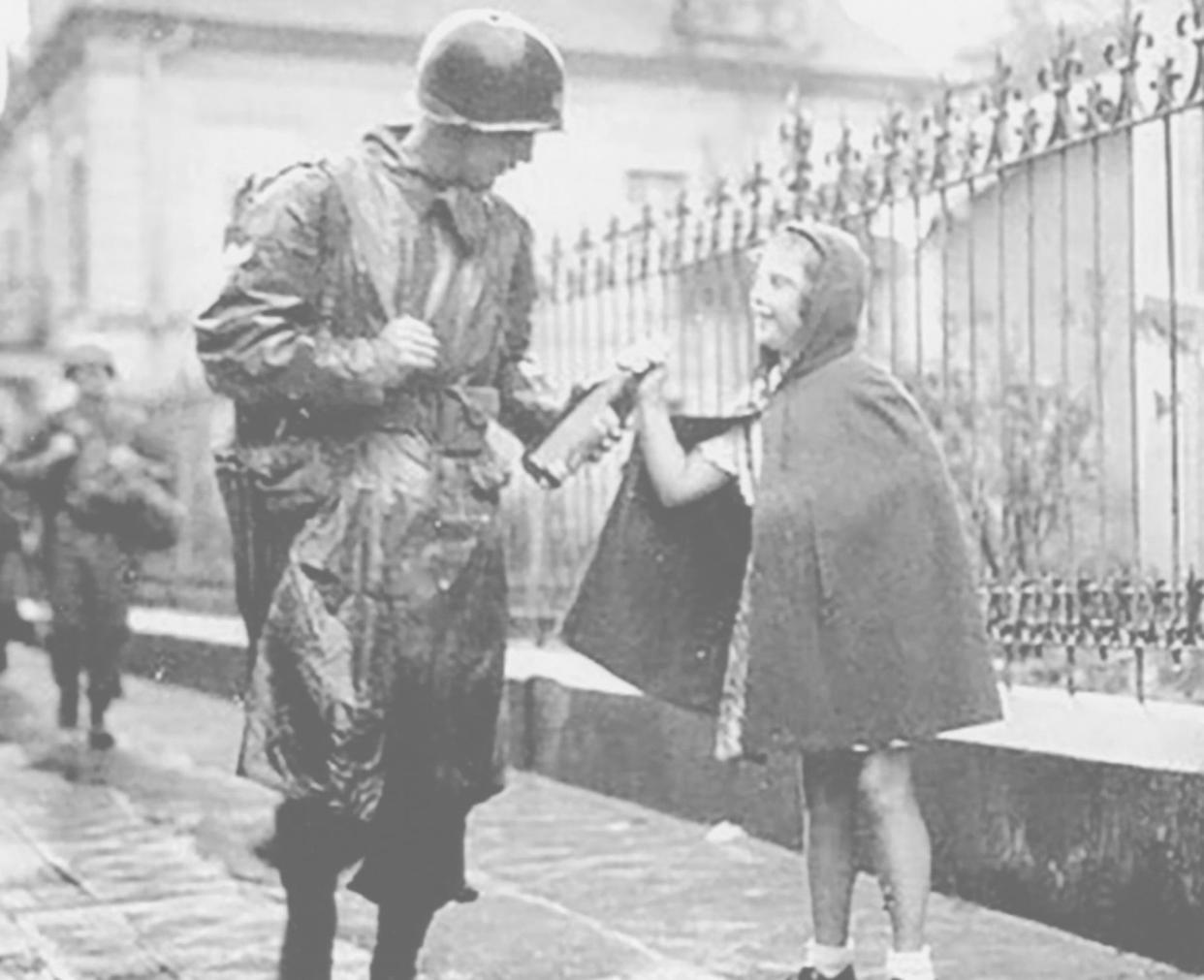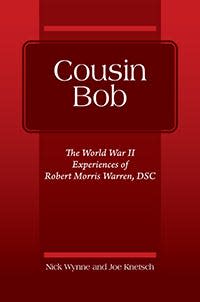With help of Tallahassee historian, 'Cousin Bob' tells Jewish soldier's story | Book review

With an estimated 70,000 or more books written about World War II, it is difficult to provide a fresh perspective, but Nick Wynne and Joe Knetsch, a Tallahassee writer and historian, manage to pull it off in "Cousin Bob: The World War II Experiences of Robert Morris Warren."
In reading the early chapters of this book, it soon became apparent that the story involves more than a chronicle of key European battles from a soldier’s perspective.
Wynne, who lives in Rockledge, Florida, and Knetsch seek to understand why a middle-class Jewish man (Warren), a practicing Detroit attorney, would choose to enlist as a common private in the Army infantry when he could have easily received an officer’s commission.
The book provides valuable context in Depression-ridden Detroit and covers the political and Zionist movements of the time.
The idea for the book came about during the peak COVID pandemic. In early 2021, Wynne’s wife Debra was going through papers from her late father and found a cache of 33 letters from a close family friend, Robert Morris Warren, known affectionately as “Cousin Bob.”

Warren had been a decorated World War II soldier, political activist and prominent Detroit lawyer.
“On the surface, there was little to distinguish this small collection of letters from hundreds of others I have seen during a 50-year career as a professional historian,” wrote Wynne, “but as I read them, I remembered conversations I had with my father-in-law about growing up in Detroit, and about the people he had known.”
Wynne enlisted the help of fellow historian and author Knetsch, who has Michigan roots. Knetsch soon realized that his father served in the same Army unit as Warren, so his interest was piqued. One of their goals for the book was to skillfully provide a context for “understanding the haphazard writing of correspondence during times of stress.”
As covered in the book, Detroit in the 1930s was rife with unemployment, food shortages, and labor and race riots.
If not for the New Deal “make work” programs, food assistance and the planting of public “thrift gardens,” Michigan and possibly the rest of the county might have suffered a complete economic breakdown. With the onset of world war, however, Detroit recovered quickly and became the “Arsenal of Democracy.”
Like more than 6,000 other Jewish men and women in the Detroit area, Warren heeded the call to join the American military, despite the risk of death if captured by Nazis and prejudice from fellow soldiers. I won’t detail here why Warren joined as a private since I will leave that for the reader to determine, but he received his basic training at Fort McClellan, Alabama, in 1943.
“The sole moving objective of our officers & teachers which runs through every moment of our training is to convert raw, untrained civilians into hardened military killers in the shortest time,” wrote Warren. “The result is vigorous training. But regardless of how tough the training is, it is good to see that the officers training us are bent on victory.”
After basic training, Warren was shipped to Italy as part of replacement units in the Seventh Army. Of the Italian people, Warren wrote, “Most people are beaten, downhearted, sick. They see their country in ruin & humbled in the eyes of everyone.”
Warren was part of the successful effort to break through the German lines and capture Rome.
During Warren’s letters of campaigns in Italy, France and southern Germany, Wynne and Knetsch skillfully put each battle into perspective and how they furthered the goal of ultimately crushing Nazi Germany. But Warren’s words bring everything down to earth from a soldier’s perspective.
Upon reading a letter from a friend who stated that he was glad France was being retaken without opposition, Warren wrote in response, “As I read this, lying in my hole counting the shells falling around, all this produced from me was an ironic, sardonic laugh. It seems there are some ‘unopposing’ suicidal last stands and some ‘unopposing’ refusals of our surrender ultimatums and many other things I can recall.”
He described the German opposition as “tenacious” and he wrote little during this time since he was on the front lines in deadly village to village fighting.
In command of a mortar squad, Warren was awarded the country’s second highest honor for bravery, the Distinguished Service Cross.
But "Cousin Bob" gives us an often gripping glimpse of life and death behind the medal, a must-read for those seeking a greater understanding of the Second World War as fought in Europe in 1944 and 1945.
"Cousin Bob" is available in local bookstores.
Doug Alderson is the author of 15 published books about history and natural history. He is also president-elect of the Tallahassee Writers Association. For more information, log onto www.dougalderson.net.
Never miss a story: Subscribe to the Tallahassee Democrat using the link at the top of the page.
This article originally appeared on Tallahassee Democrat: Book review: 'Cousin Bob' tells Jewish soldier's WWII story

